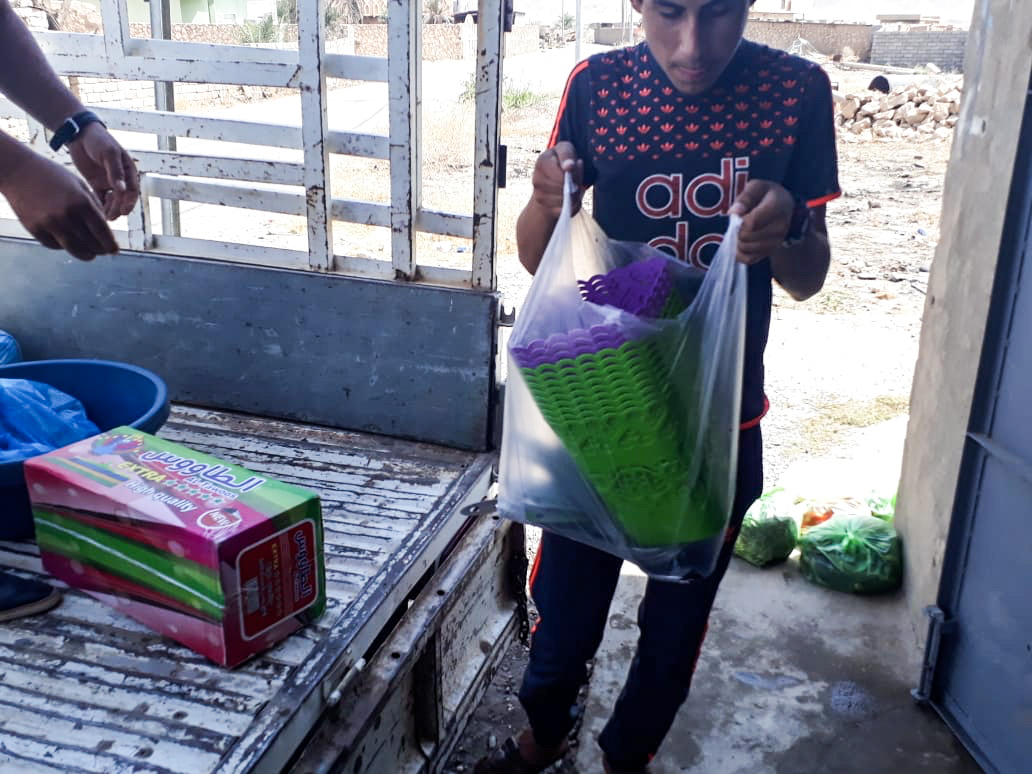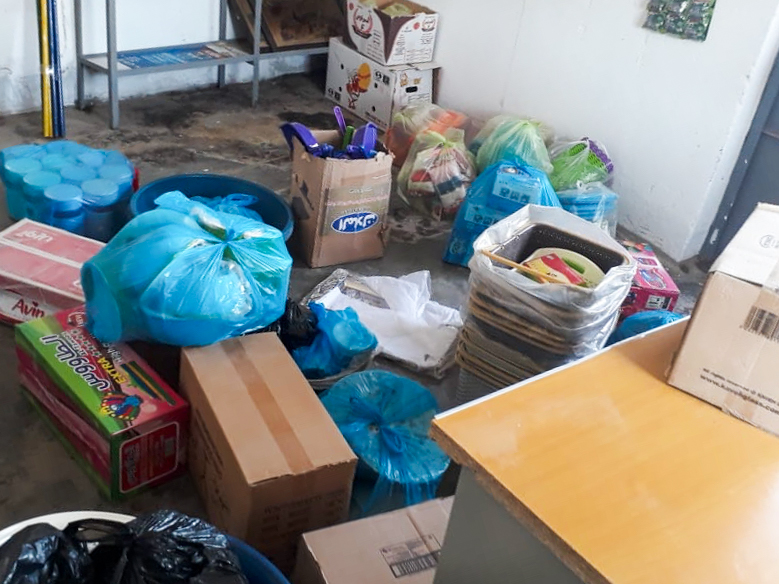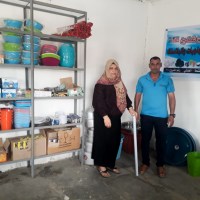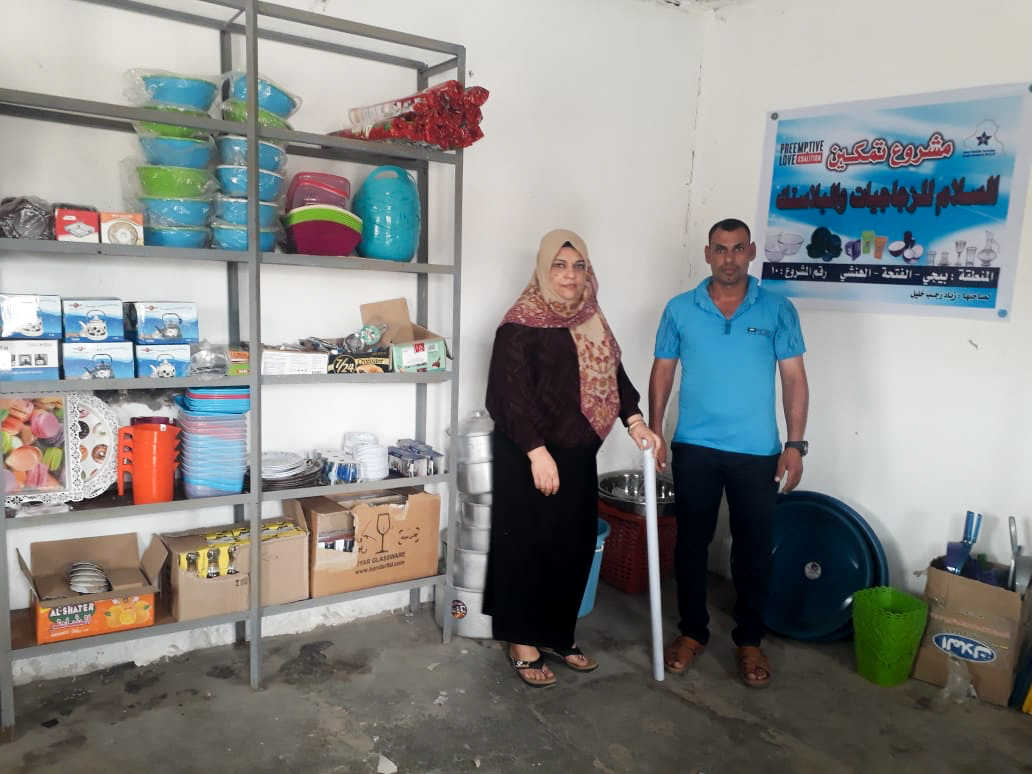When Zyad finally returned home after years of displacement, everything had changed. His family home lay in ruins. Livelihoods were lost, basic services remained scarce, and fears over safety prevailed.
“My hometown is not like before,” he says. But as the days of war and displacement are finally behind them, the energy of life is slowly making its way back to his neighborhood. Schools and markets have reopened, businesses are slowly beginning to reappear, and thousands like Zyad have returned.
Most epics tales end with the return—the long journey coming to an end, the hero returning to the safety and security of home. But what happens when that home is no longer there, when all that remains is the destruction of war and a community left reeling in the aftermath?
For Zyad—and the millions of Iraqis who came home in the wake of violent conflict—their stories are far from over. What awaits so many is continued hardship as they take on the next part of the journey and begin to rebuild all that was destroyed.
Returning Home to Devastation
Zyad and his family returned early this year to their hometown of Baiji, north of Baghdad on the main road to Mosul. Baiji suffered devastating levels of destruction over the last few years, sitting at the center of ongoing battles between ISIS, militias, and government forces. Like thousands of others, Zyad took his family and fled as coalition airstrikes and retaliatory punishments weaved their way into daily life, creating a state of constant fear as food, water, and medical supplies dwindled to almost nothing.
Now the battles are over, ISIS has lost control, and residents are returning as the long road to recovery begins. With the rebuilding of life in the wake of war, what comes to mind is the overarching infrastructures that a community needs to survive. Clearing away the rubble, the reestablishment of homes, schools, and hospitals, and bringing back basic services like water and electricity.
However, the process goes far beyond this larger scale reconstruction. There are also the smaller, more intricate necessities that help manage our daily existence—pots to cook food for your children, a tea set to serve friends, curtains to shield you from the sun. We can often take these items for granted, but the lack of these basic necessities can act as a huge impediment to those longing to return to the normal routines of life after years of displacement.

Providing Basic Necessities—And Hope
Within this environment, the community of Baiji has come together, loving and supporting each other as they pick up where their lives left off. A hallmark of this community dynamic has been Zyad’s small shop, which he opened with your support. His aim is to provide anything that families may need, selling basic household items at affordable prices.
 For families arriving back to their old neighborhood with next to nothing, replacing a lifetime’s worth of belongings can be an overwhelming and near impossible task. Rebuilding from scratch means starting with the most basic of needs at home. From teaspoons and bedspreads to the disinfectant that works best on their floors, most people accumulate the contents of their homes over decades, and when they returned much of it was gone.
For families arriving back to their old neighborhood with next to nothing, replacing a lifetime’s worth of belongings can be an overwhelming and near impossible task. Rebuilding from scratch means starting with the most basic of needs at home. From teaspoons and bedspreads to the disinfectant that works best on their floors, most people accumulate the contents of their homes over decades, and when they returned much of it was gone.
However, this small shop in Baiji has provided a sense of hope to those families working to fall back into the patterns of daily life. While families can upgrade to higher quality items as their livelihoods develop, Zyad has created a space for those quick, cheap purchases that enable his neighbors to lean back into the normal routines of life and begin the process of recovery. “All the neighbors really support me, because the things I bring to the shop are what they need,” he says.
Establishing Freedom and Independence
The small shop has also been key to helping Zyad create a sense of security for himself and his family. Zyad lives with epilepsy and during the years of displacement, he was forced to rely on the help of his family to get by.
Living with an illness is hard for anyone, but to do in the center of conflict is incredibly challenging. While under ISIS, and then in displacement, Zyad’s access to basic healthcare was almost impossible. With many healthcare facilities destroyed and no access to medical supplies, his battle with epilepsy within the volatile context of war was increasingly perilous.
The effects of illness, alongside war and displacement, can leave a person feeling defeated, but Zyad did not let the harshness of life hold him back from working towards a safe and stable future for their family. Through his shop, he is establishing a sense of freedom and independence, and the chance to stand up for his family and provide for their future.

Partners in Business and Life
There is a strong sense of love among his family and community, who Zyad says have been a source of great support as he works to set up his business. And above this, his wife has stood out as his greatest companion, a pillar of strength who provides unconditional support in his business and life. “I am really lucky,” he says.
In the mornings Zyad opens up his shop, and every half hour his wife comes and checks in on her husband. She makes him tea and on occasion takes over the shop so he can rest. And with the bond between husband and wife, along with the opportunities that a growing business provides, the future of their family is colored with hope. “I feel satisfied. I don’t need to worry about the future because I can rely on myself, and my children and my family can rely on me too,” he says.


